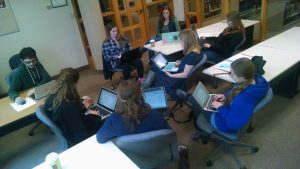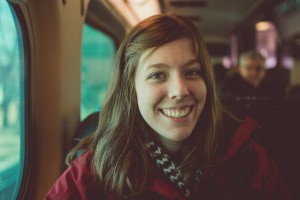By Leigh Clouse, ’13
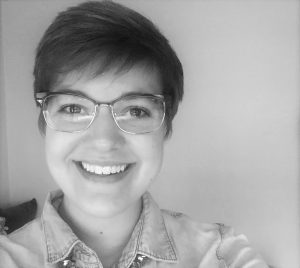 As a writer, there is often nothing more terrifying than sharing my work with others. Whether I’m in a formal class workshop or in a relaxed setting with fellow writer friends, my anxiety always finds a way to tag along for the ride. The critique process has a way of making me feel exposed, so exposed that I want to sink through the floor when I hear someone say that the main character in my story seems one-dimensional or that the ending that I worked on for eons comes off as trite. Having to critique another’s piece can be daunting too. There’s an internal pressure to be insightful, and I struggle at times to articulate why I think something is or isn’t working. On more than occasion I have thrown out lame comments that make me wince when I think about them hours later.
As a writer, there is often nothing more terrifying than sharing my work with others. Whether I’m in a formal class workshop or in a relaxed setting with fellow writer friends, my anxiety always finds a way to tag along for the ride. The critique process has a way of making me feel exposed, so exposed that I want to sink through the floor when I hear someone say that the main character in my story seems one-dimensional or that the ending that I worked on for eons comes off as trite. Having to critique another’s piece can be daunting too. There’s an internal pressure to be insightful, and I struggle at times to articulate why I think something is or isn’t working. On more than occasion I have thrown out lame comments that make me wince when I think about them hours later.
As nerve-wracking as being part of a writing community can be, I have learned over the years, as a creative writing major at Hope and as part of a MFA cohort at Boston University, how vital it is in both bettering my work and forming a network of people who challenge me.
To ward off bouts of shame-spiraling, I try to keep in mind the benefits of workshopping, one of the most essential being that there are more minds than just my own at my disposal. When I am at my wits’ end because my plot has evaporated into the ether, it’s a comfort to have the resources of others’ imaginations to come up with potential solutions for the problematic.
Once I’ve been working on a piece for a while things tend to become muddled, and it can be difficult to put my finger on what doesn’t feel right. It’s good to have people who aren’t also trapped in the mire of my self-doubt. And while I may not want to act on every suggestion I receive, I am comforted by having pages of notes about possible next steps after a critique session.
Being in different writing groups has also improved my ability not only to constructively critique another’s work but also to be a better critic of my own. Once I get past the thought of workshop as something to dread, it becomes an opportunity to immerse myself in different ways of thinking. While it may not seem I have anything more to go on than a feeling when it comes to someone’s story at first, often hearing another’s opinion causes me to make sense of my own.
Workshopping becomes a team sport rather than an individual event. And by helping others hone their writing, certain truths about my own can be revealed if I’m open to it. I may find that another writer’s language is clearer and livelier than mine, encouraging me to declutter my pieces of ungainly metaphors, which wrap their sea monster tentacles around the vessel that is my story. Making these types of observations keeps me mindful about what I am trying to achieve and how I want to get there.
Most importantly, I believe being in community is the best way to stay humble and striving as a writer.
It’s a system of checks and balances on the ego. While I would be dishonest if I didn’t say I enjoy having workshops where I feel like I’ve won all the gold stars, the story a hit, I don’t learn as much from them as the ones that are, in my mind, total train wrecks. When done right, critiques move writers toward development and growth. Though it might be humiliating, a “bad” workshop pushes me to rally and be resilient when facing rejection—something that happens to writers on a regular basis. Though I’d rather isolate myself and wallow after these experiences, my writing communities have always been there to bolster my confidence.
As a Hope professor once said, we need our fellow writers to be both our cheerleaders and coaches. We are there to help each other get up when we stumble and then to move on. So in those moments I feel exposed when workshopping, I try to remember all the good that can come from it. Anxiety, be gone.


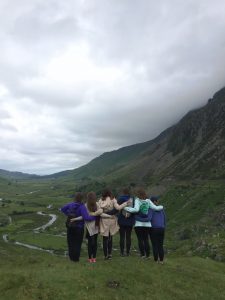
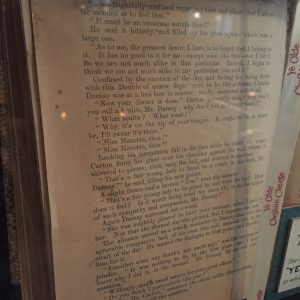
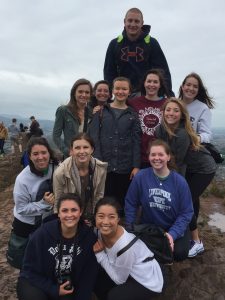

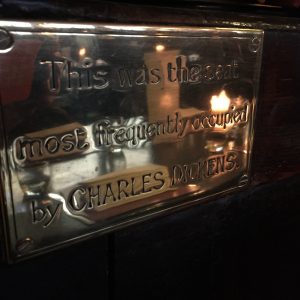
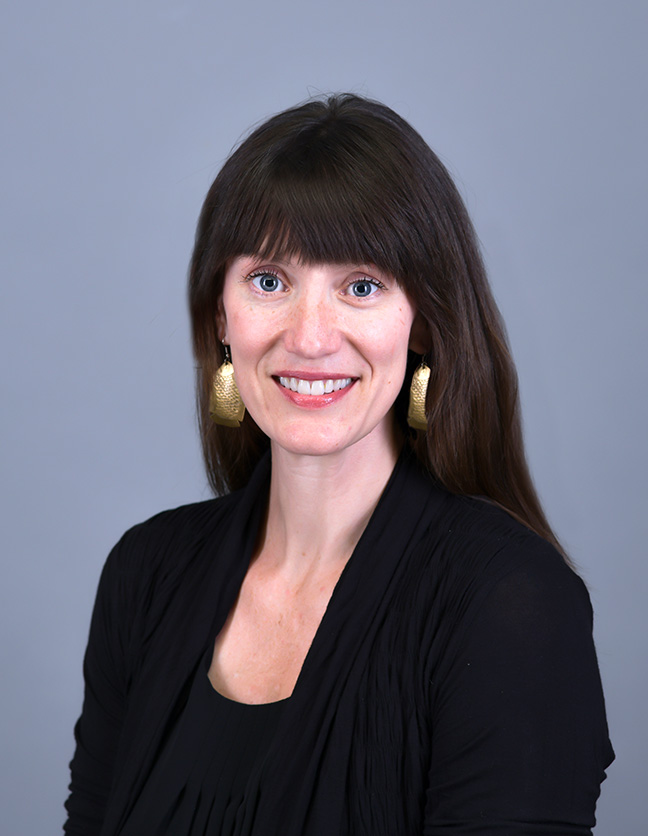 This past January, on an icy Sunday afternoon, I took my husband on a hot date. I know, perhaps not a typical first sentence for the English Department blog. Stay with me.
This past January, on an icy Sunday afternoon, I took my husband on a hot date. I know, perhaps not a typical first sentence for the English Department blog. Stay with me.